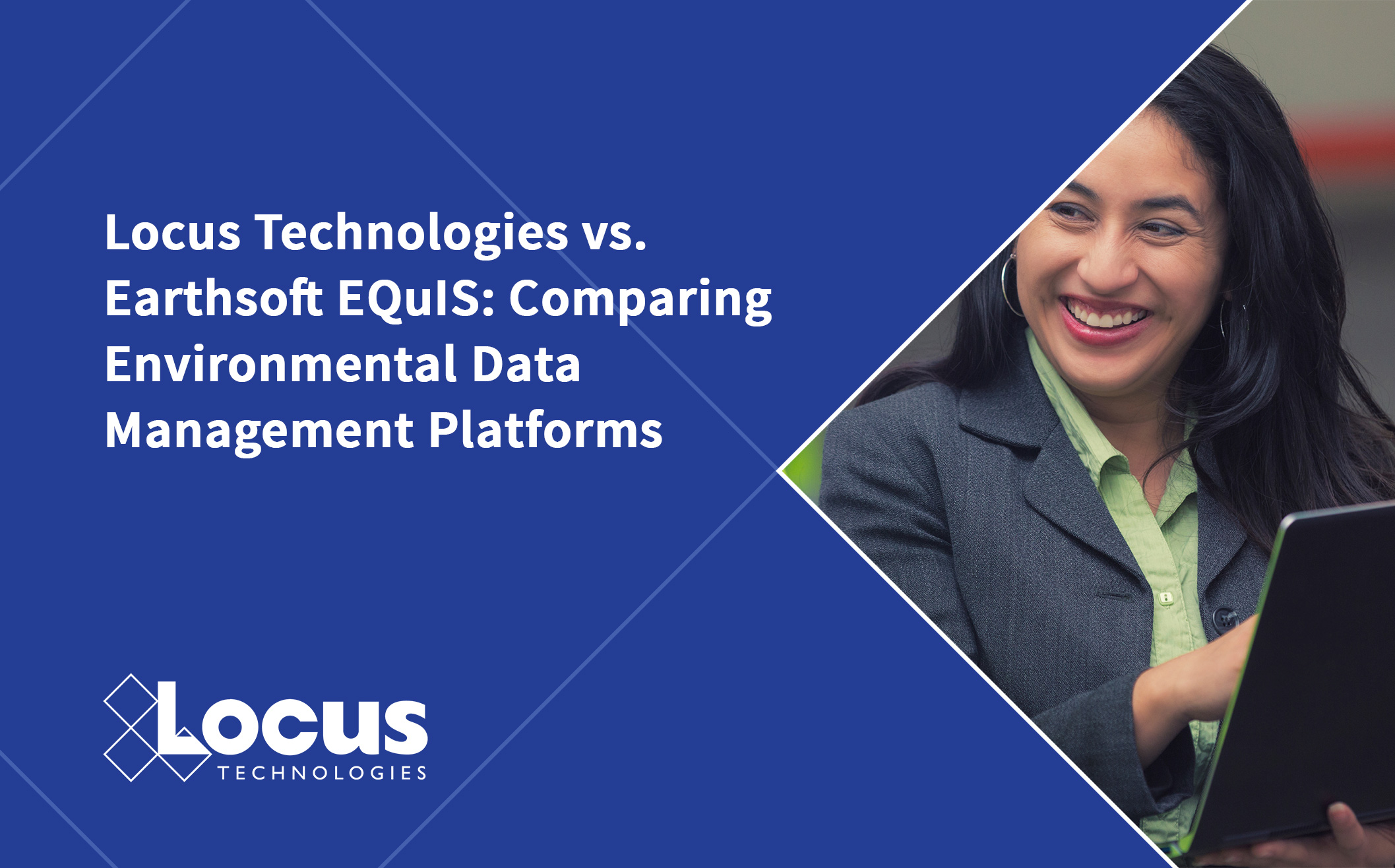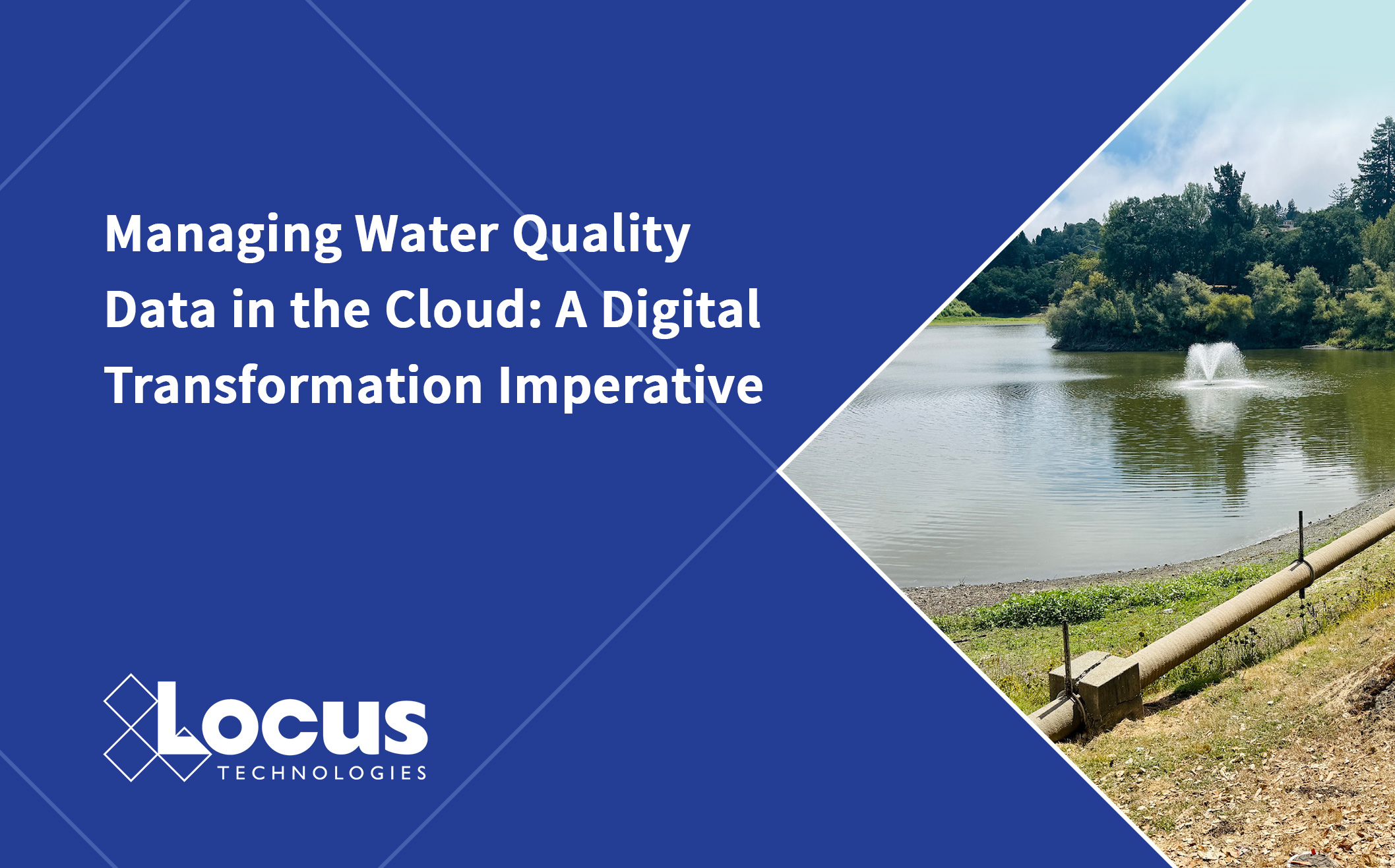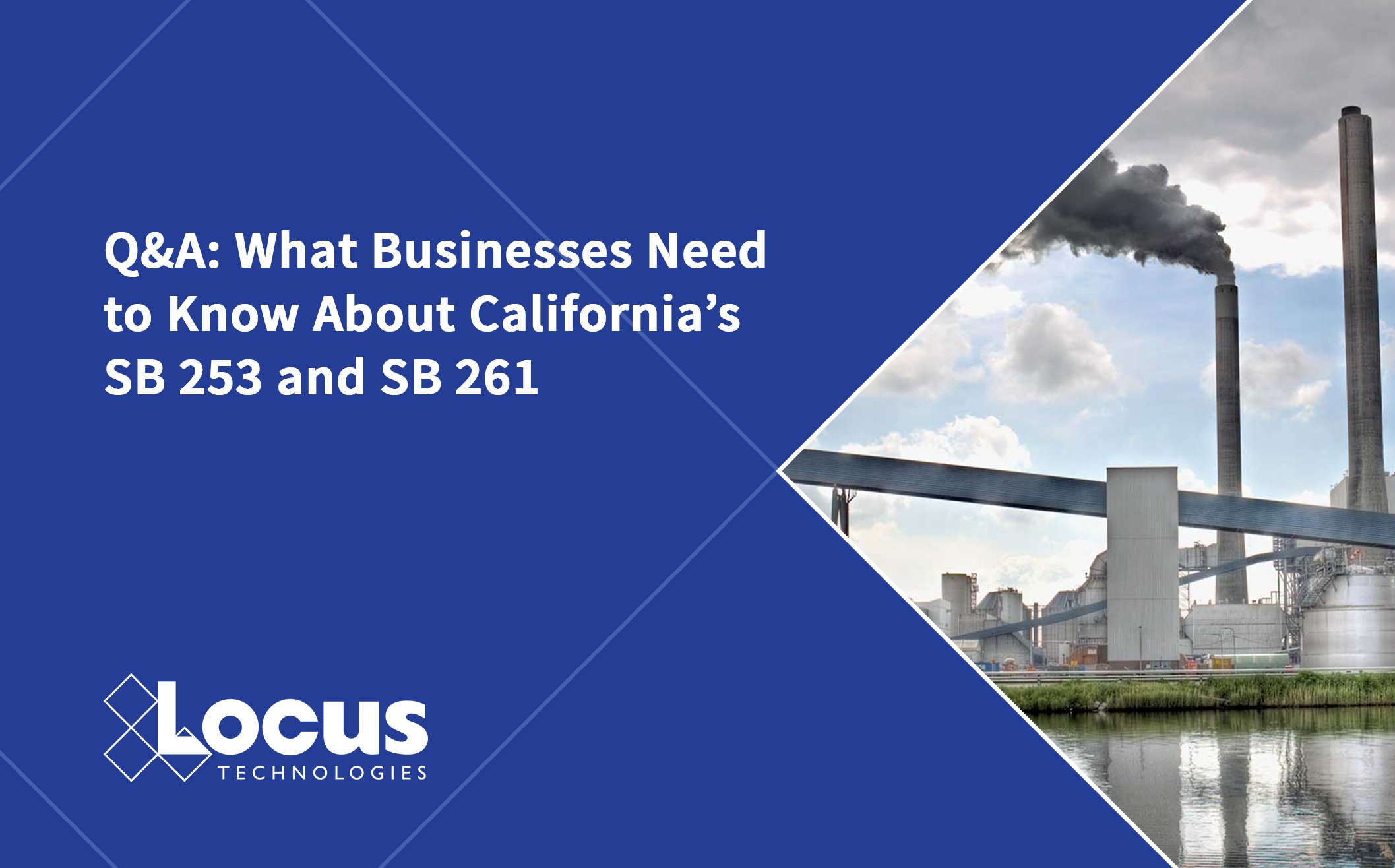Locus Technologies vs. Earthsoft EQuIS: Comparing Environmental Data Management Platforms
By Staff Writer

Reading Time: 3 minutes 15 seconds
When it comes to enterprise environmental data management, Locus Technologies and EarthSoft’s EQuIS are two of the most recognized names in the industry. Both offer powerful solutions for managing analytical, compliance, and geotechnical data — yet their architecture, usability, and AI capabilities differ significantly.
This analysis summarizes key distinctions between the platforms, based on publicly available user reviews and product specifications. For a more in-depth report on this analysis, please contact our team.
| Category | Locus EIM | EarthSoft EQuIS |
|---|---|---|
| Architecture | True multitenant SaaS architecture built from the ground up for the cloud. | Legacy single-tenant, client–server model retrofitted for web use. |
| Deployment | Native cloud solution (no local installation or desktop dependency). | Primarily on-premise or hosted per-customer instance (pseudo-cloud). |
| Web Longevity | Proven web platform since 1999 — the longest-running environmental SaaS globally. | Originated as a desktop system (mid-1990s) with later partial web extensions. |
| Scalability | Infinitely scalable across users, sites, and data volumes due to multitenancy. | Limited scalability; each instance must be managed and scaled separately. |
| AI & Analytics Readiness | Unified data model across all tenants enables validated, aggregated datasets for AI and machine learning. Locus AI synthesizes emissions, chemical inventory, water metrics, lab results, permits and deadlines, thresholds, exceedances, and anomalies to enable natural language search, predictive analytics, compliance optimization, and proactive risk mitigation. | Fragmented data silos by customer; not suited for AI model training or cross-portfolio analytics. AI-powered knowledge management portal offers summaries and metadata extraction of product documentation, field notes, and archival materials. |
| Data Integration & Management | Centralized, metadata-driven data model with built-in data validation, APIs, and automation tools. Connects to Microsoft Power BI, Esri ArcGIS Online, Tableau, ERP software, HR platforms, supply chain, and project management systems. | Complex schema variations between deployments; integrations require customization. API upgrades support Microsoft Power BI or Esri ArcGIS Pro Desktop. |
| Electronic Data Deliverable (EDD) Handling | Single-file EDD upload and validation with smart mapping and auto-correction. Larger library of EDD formats. End-users can create their own without intervention. | Requires multiple EDD files; more manual handling and higher error rates. Simple loading for existing EDD formats. Users report that fees are incurred for assistance creating new EDD formats. |
| Updates & Maintenance | Continuous updates to all customers simultaneously with zero downtime. | Each customer instance is updated separately, causing delayed rollouts and version fragmentation. Depending on version number, major upgrades may require reinstallation with IT assistance. |
| Pricing Model | Transparent subscription based on data volume or usage; no per-instance hosting. | Balkanized model—separate fees for desktop, enterprise, and add-on modules per site. |
| Uptime & Speed | Real-time verifications of 99.99% uptime across all customers are published by a 3rd party. | Real-time verifications of the uptime performance of web versions are not provided. |
| Collaboration | Shared, secure platform enabling cross-organization data sharing instantly. | Isolated databases restrict collaboration and benchmarking. |
| Data Security & Compliance | Centralized security model. SOC 1 Type 2 accredited since 2012; SOC 2 Type 2 accredited since 2012. Enterprise-grade controls verified by independent auditors annually since 2012. | Security varies by installation. SOC 2 Type 2 accredited; ISO 27001:2022 certified. |
| User Configuration | Power users configure their Locus software on-the-fly to adjust interfaces, workflows, fields, and business logic. | Enterprise users can customize widgets and screens with limitations. Options to customize workflows or integrate with other systems may be limited. |
| Total Cost of Ownership | Lower: no IT overhead, no separate server licensing, instant scaling. | Higher: multiple installations, hardware dependencies, and consulting hours. |
| Future Readiness | AI-powered, continuously modernized, metadata-driven. | Aging architecture; difficult to adapt for AI and digital twin integration. |
A G2 marketplace reviewer summarized it succinctly:
“The user interface for EQuIS is so basic that it is like comparing analog to digital. When compared to other online platforms like Locus, EQuIS has a lot of work to do in improving their UI… The customizability of EDDs is so narrow that users have to review too many files to upload their required data.”
Key Takeaways
The fundamental difference between Locus EIM and EarthSoft EQuIS lies in architecture and vision. EIM was built from day one as a true multitenant SaaS platform, while EQuIS originated as a desktop database tool retrofitted for the web. This architectural divide determines everything that follows — scalability, cost efficiency, maintenance-free updates, and readiness for AI.
Because Locus operates as a unified cloud environment, all customers share the same continuously improved platform. Updates are instant and seamless, security controls are centralized, and data is consistently validated and structured. In contrast, EQuIS relies on a fragmented, single-tenant model where each customer instance is separately installed, updated, and maintained — a balkanized approach that drives cost, inconsistency, and data silos.
For organizations seeking to integrate advanced analytics, automate compliance, or prepare for AI-driven insights, Locus EIM provides a future-ready foundation. Its multitenant architecture enables aggregation of validated data across millions of records, powering machine learning and predictive analytics at scale. Even at the operational level, EIM delivers greater efficiency — from single-file EDD uploads and automated validation to seamless integration with other enterprise systems.
In short, while EQuIS has its fans, Locus EIM represents the modern, AI-ready cloud for environmental and compliance data management — proven, scalable, and continuously evolving.
“One of the most underappreciated risks in environmental data management is version fragmentation. In a single-tenant model, each customer instance may be running on a different software version, which means different validation rules, different data structures, and different behavior across the same organization’s sites. That inconsistency doesn’t just create IT headaches; it creates compliance exposure. Auditors and regulators expect your data to be consistent and defensible. A unified multitenant architecture makes that consistency a structural guarantee rather than a manual effort.” – Neno Duplan, PhD, CEO, Locus Technologies
Locus is the only self-funded water, air, soil, biological, energy, and waste EHS software company that is still owned and managed by its founder. The brightest minds in environmental science, embodied carbon, CO2 emissions, refrigerants, and PFAS hang their hats at Locus, and they’ve helped us to become a market leader in EHS software. Every client-facing employee at Locus has an advanced degree in science or professional EHS experience, and they incubate new ideas every day – such as how machine learning, AI, blockchain, and the Internet of Things will up the ante for EHS software, ESG, and sustainability.



